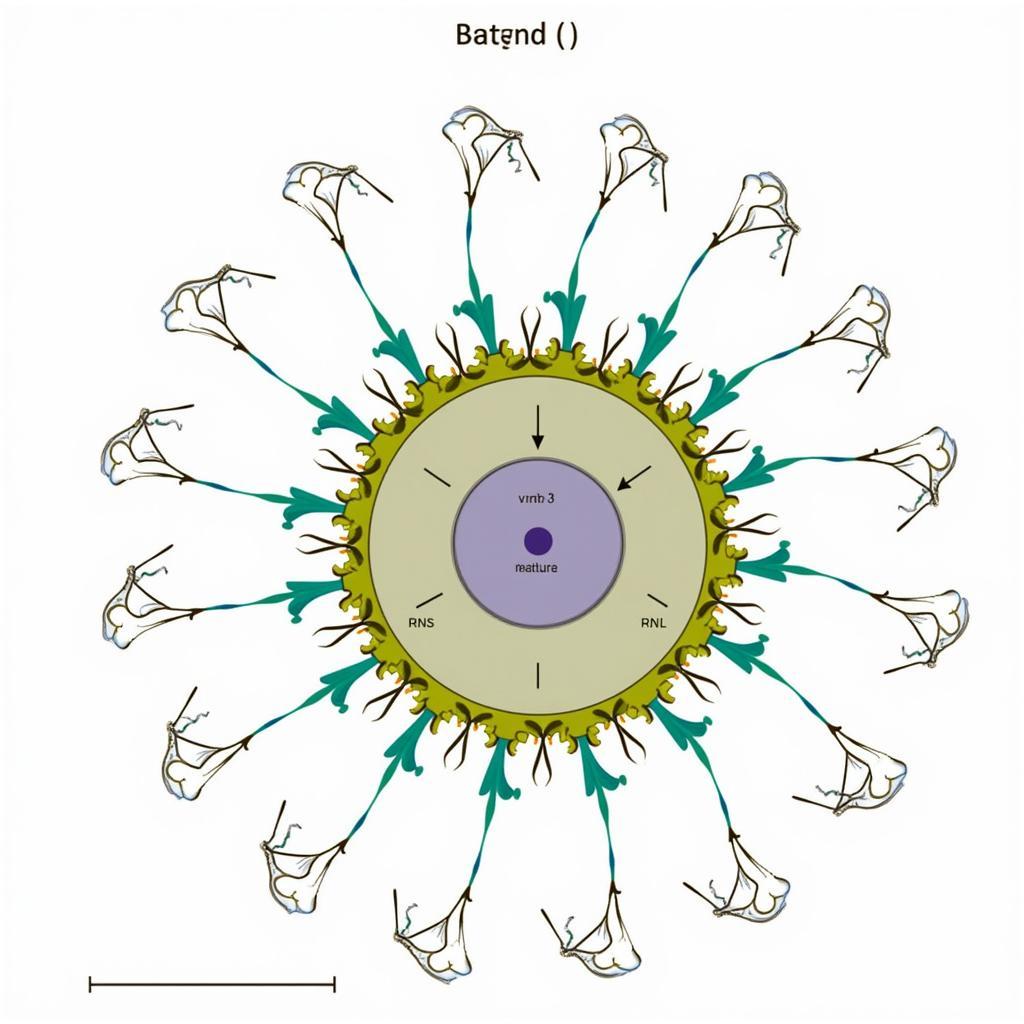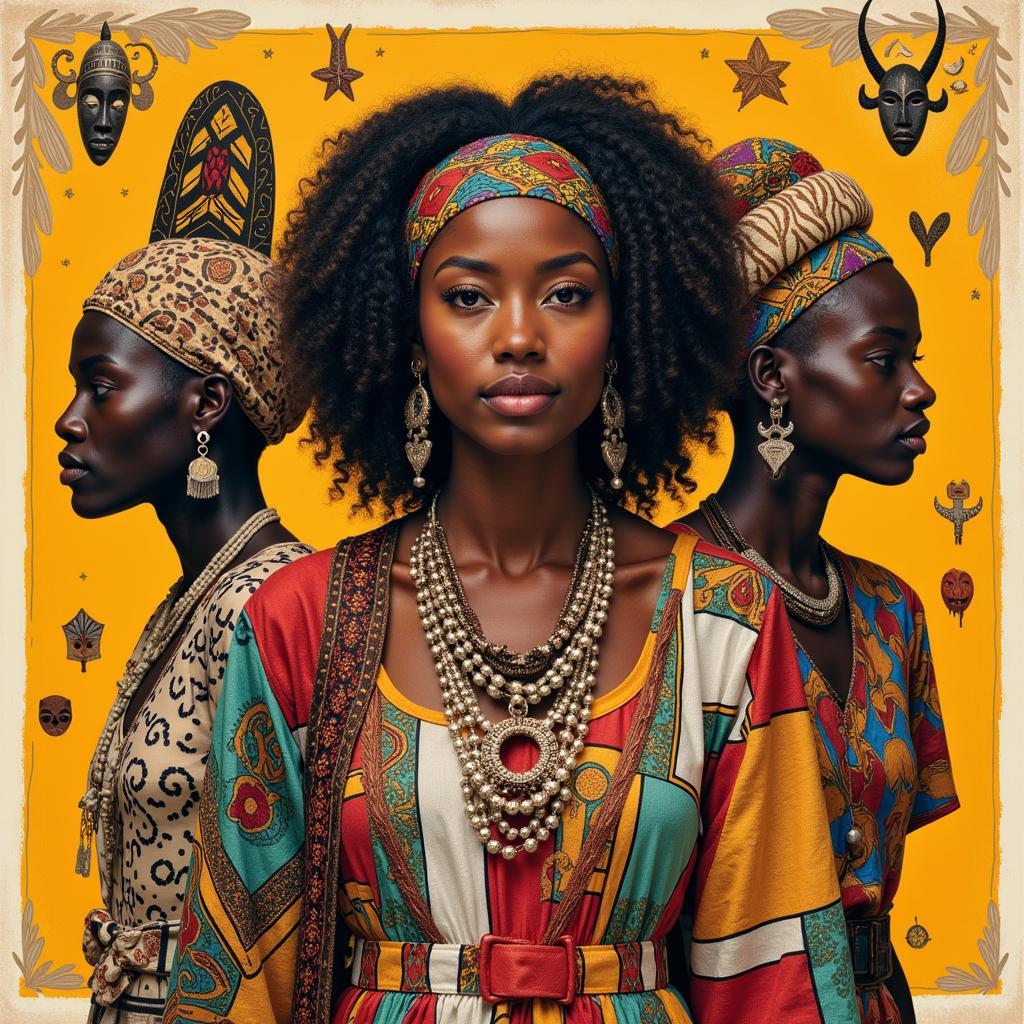The Complex Relationship with Images of Naked African Women
The term “Naked African Women” carries a fraught history, intertwined with colonialism, exploitation, and the objectification of Black female bodies. While it’s crucial to acknowledge the harmful legacy associated with this phrase, it’s equally important to approach the topic with nuance and sensitivity. This article delves into the historical context, cultural significance, and contemporary perspectives surrounding the depiction of nudity and the female form in Africa.
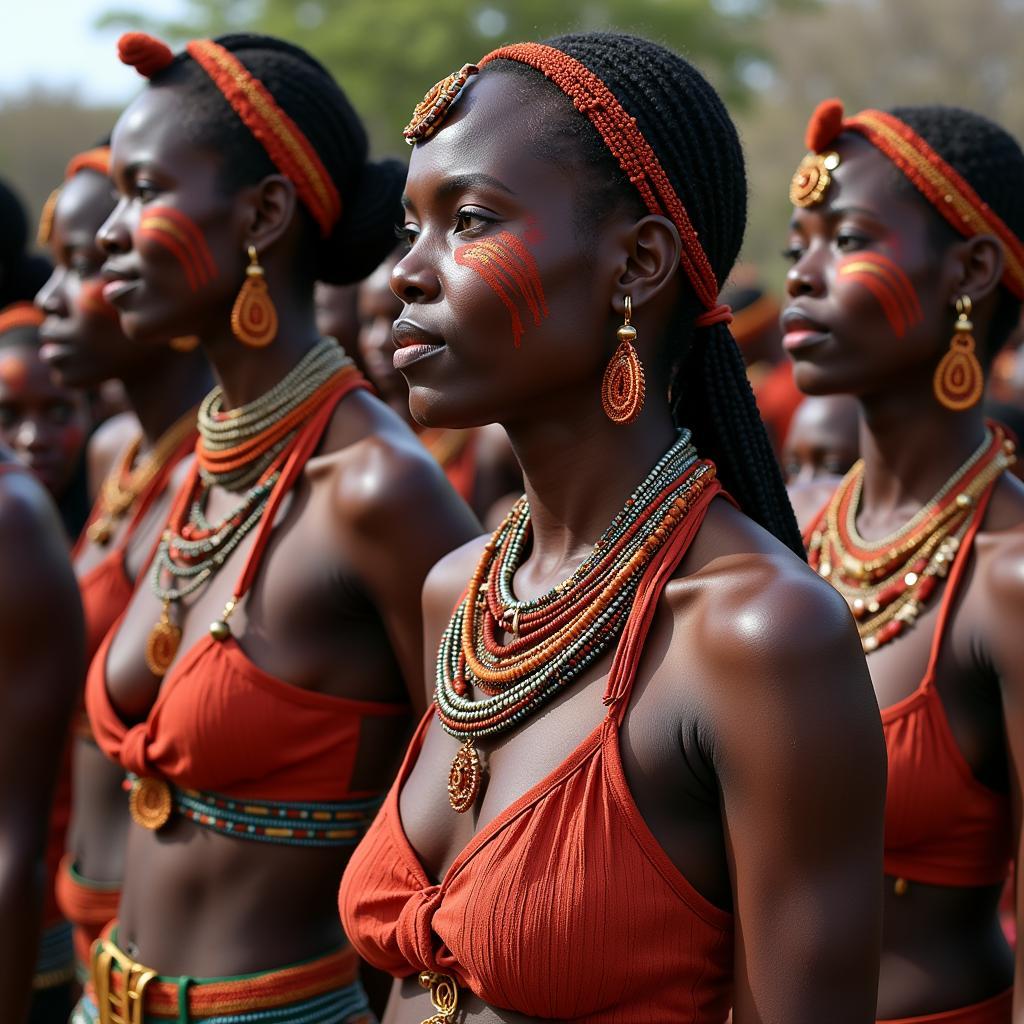 African Women in Traditional Ceremony
African Women in Traditional Ceremony
A Legacy of Exploitation: How the Western Gaze Distorted Perceptions
The European colonization of Africa brought with it a wave of anthropologists, explorers, and missionaries who often viewed the continent through a Eurocentric lens. Traditional African customs, including those related to nudity and body adornment, were frequently misinterpreted as primitive, savage, or inherently sexual. This skewed perspective fueled the production of ethnographic photographs and postcards that often depicted African women in various states of undress, further perpetuating harmful stereotypes and contributing to their sexualization.
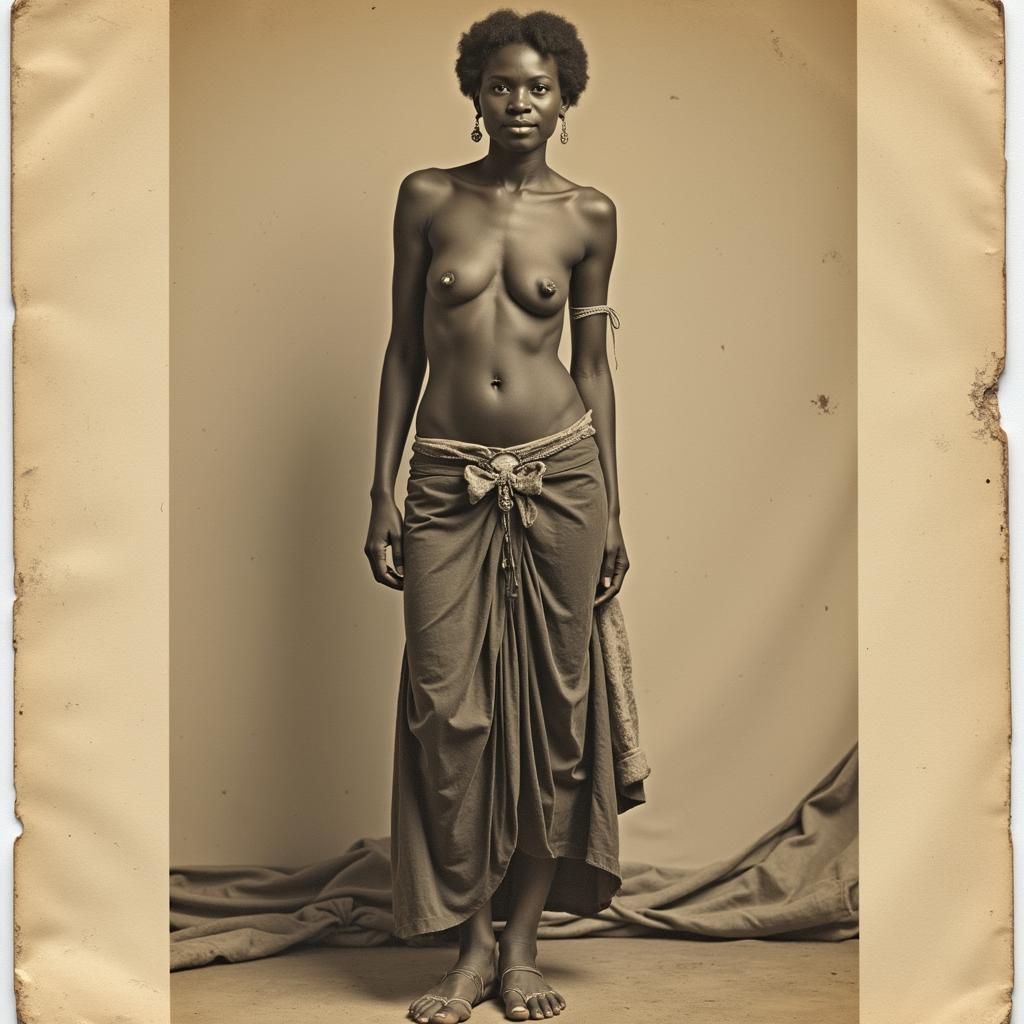 Colonial-Era Postcard Depicting an African Woman
Colonial-Era Postcard Depicting an African Woman
It’s crucial to understand that nudity in many African cultures has historically held diverse meanings and served various purposes beyond Western notions of sexuality.
Beyond the Male Gaze: Reclaiming Agency and Celebrating Diversity
In many traditional African societies, nudity or partial nudity wasn’t inherently associated with shame or impropriety. Instead, it could signify:
- Rites of Passage: Coming-of-age ceremonies, marriage rituals, and funerary practices often involved symbolic nudity or specific forms of body adornment.
- Spiritual Connection: In some cultures, nudity played a role in connecting with ancestral spirits or deities, particularly within animistic beliefs.
- Social Status: Body scarification, tattoos, and specific adornments could signify social standing, lineage, or marital status.
- Practical Considerations: In certain climates, minimal clothing served a practical purpose, particularly for activities like farming or labor.
It’s essential to recognize that generalizing about an entire continent is problematic. Africa is incredibly diverse, with 54 countries and thousands of ethnic groups, each with its own unique customs and beliefs.
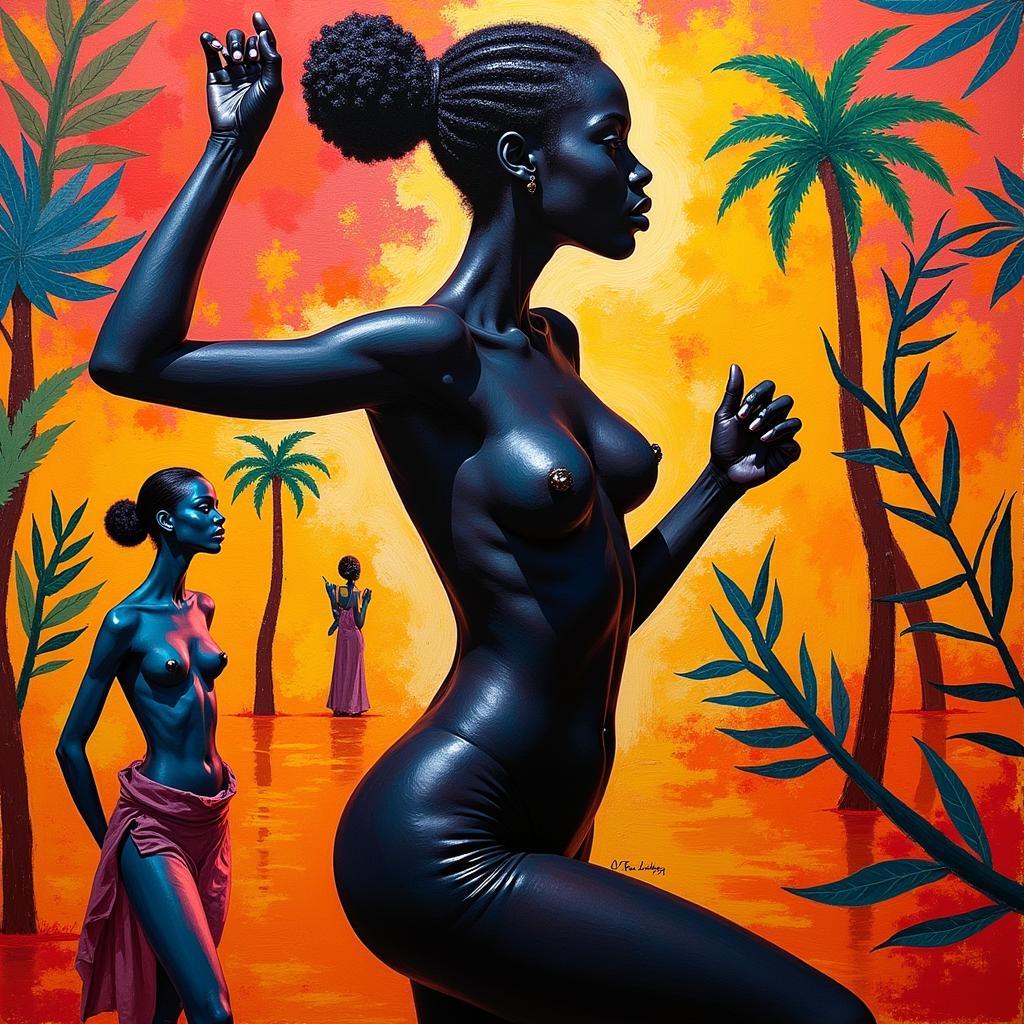 Contemporary African Art Celebrating the Female Form
Contemporary African Art Celebrating the Female Form
The Modern African Woman: Navigating Representation in a Globalized World
Today, African women are actively shaping the narrative surrounding their bodies and their representation. From fashion to film to visual arts, they are challenging stereotypes, celebrating their heritage, and reclaiming their agency.
However, the legacy of colonialism continues to cast a shadow, and the hypersexualization of Black women persists in various forms of media. It’s vital to engage with images of African women, whether historical or contemporary, with a critical eye and a commitment to understanding the cultural context.
Moving Forward: Respect, Understanding, and Informed Engagement
As we strive for a more just and equitable world, it’s imperative to approach the topic of “naked African women” with sensitivity and a commitment to dismantling harmful stereotypes. We must:
- Challenge the Male Gaze: Recognize and critique the historical and ongoing objectification of Black women’s bodies.
- Amplify African Voices: Center the perspectives and experiences of African women themselves in discussions about their representation.
- Support African Artists and Creatives: Engage with the work of contemporary African artists who are redefining beauty standards and challenging Western ideals.
- Promote Cultural Sensitivity: Educate ourselves and others about the rich diversity of African cultures and the dangers of generalization.
By fostering respect, understanding, and informed engagement, we can contribute to a more nuanced and respectful appreciation of the beauty, power, and agency of African women.
